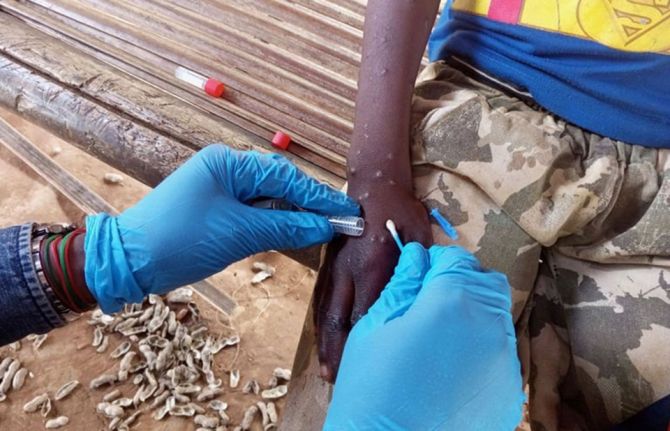

Press Statement
UNAIDS calls for a rapid international response to mpox based on rights and an equitable access to vaccines and treatments
19 August 2024 19 August 2024GENEVA, 19 August 2024—UNAIDS is calling on the international community to respond swiftly and decisively to the World Health Organization’s declaration of the mpox outbreak in several African countries as a public health emergency of international concern. The move came after the Africa Centres for Disease Control and Prevention (Africa CDC) made a similar declaration for the region.
“The emergence of a new and more contagious variant of mpox, and the devastating impact it is having on communities, across Africa, especially those most vulnerable including from HIV and AIDS, is alarming,” said Angeli Achrekar, UNAIDS Deputy Executive Director, Programme. “We must call on international efforts to focus on ensuring vaccines and treatments are accessible and available to all who need them and draw on the experience of the AIDS movement to ensure a response rooted in solidarity, compassion, inclusion, and equity.”
Many communities affected by mpox face discrimination, similar to people who are affected by HIV and AIDS. Stigma and discrimination undermine epidemic responses, driving people with symptoms underground and hindering efforts to protect public health. UNAIDS urges people to show compassion and solidarity to people affected, not intolerance and discrimination. We at UNAIDS, across the entire Joint Programme, also emphasize the crucial role of involving communities in every stage of the response—from development to implementation and monitoring.
The emergence of the 2024 mpox variant once again demonstrates the need for international, multisectoral coordination and solidarity to end pandemics. The Joint United Nations Programme on HIV/AIDS, is committed to bring its expertise and support to countries to help. UNAIDS urges all media covering the crisis to follow the regular updates being issued by WHO and Africa CDC.
UNAIDS
The Joint United Nations Programme on HIV/AIDS (UNAIDS) leads and inspires the world to achieve its shared vision of zero new HIV infections, zero discrimination and zero AIDS-related deaths. UNAIDS unites the efforts of 11 UN organizations—UNHCR, UNICEF, WFP, UNDP, UNFPA, UNODC, UN Women, ILO, UNESCO, WHO and the World Bank—and works closely with global and national partners towards ending the AIDS epidemic by 2030 as part of the Sustainable Development Goals. Learn more at unaids.org and connect with us on Facebook, Twitter, Instagram and YouTube.
